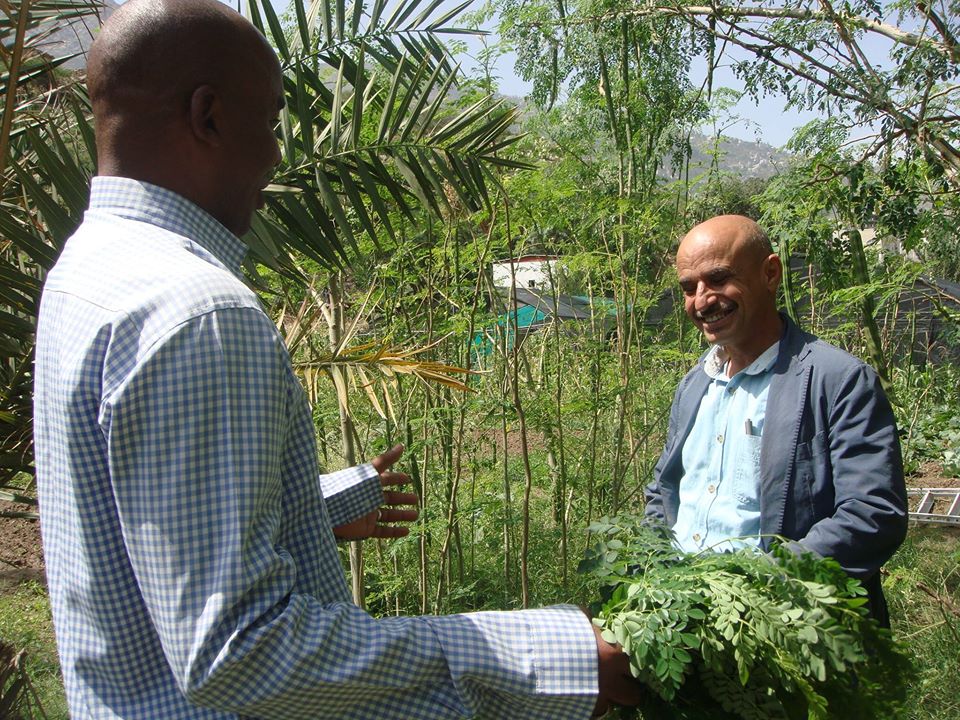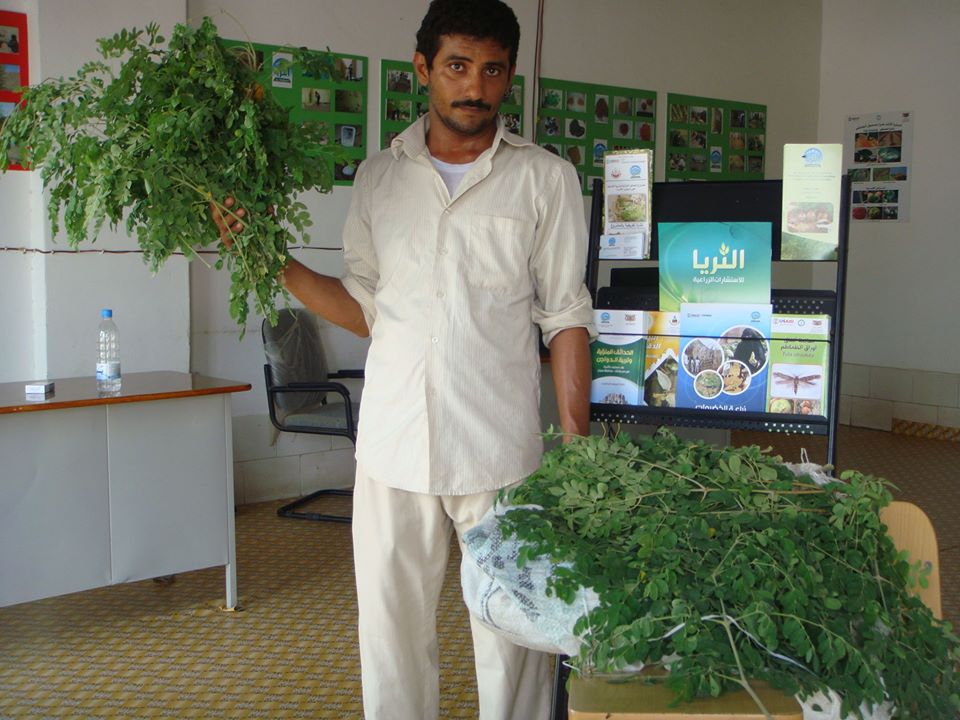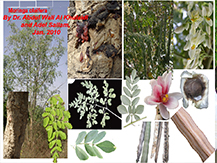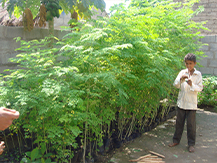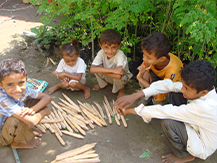
Moringa
Why Moringa
• Moringa is a fast-growing, drought-resistant tree that grows even in marginal soils, with very little care.
• Scientific research has proved that Moringa leaves are a powerhouse of nutritional value.
• Moringa is a very simple and readily available solution to the problem of food security and malnutrition.
• It is already utilized for malnutrition, water purification and medicinal proposes in many countries like India, Ethiopia, Zambia, Uganda, Nicaragua.
• A comparative study of Moringa fresh leaves gram for gram with other foodstuffs puts Moringa on top. It contains:
o Seven times the vitamin C of oranges.
o Four times the vitamin A of carrots).
o Four times the calcium of milk).
o Three times the potassium of banana).
o Two times the protein of yogurt.
• The micro-nutrient content is even more in dried leaves. It contains ten times the vitamin A of carrots, 17 times the calcium of milk, 15 times the potassium of bananas, 25 times the iron of spinach and nine times the protein of yogurt). Vitamin C drops to half that of oranges.
• Most inexpensive and credible alternative to not only providing good nutrition, but also the cure and prevention of some diseases.
For intensive production, Moringa can be planted around homestead. Plant the tree every 2 – 5 meters between rows and 0.5 – 2 between plants, depending on the land size, interest of the farmers and water and soil type. Planting Moringa at homesteads has additional advantages:
• Close to where people live where easily can be looked after the tree.
• Gives easy access to collect leaves, pods and seeds, and flowers for different use.
• Has aesthetic values, and.
